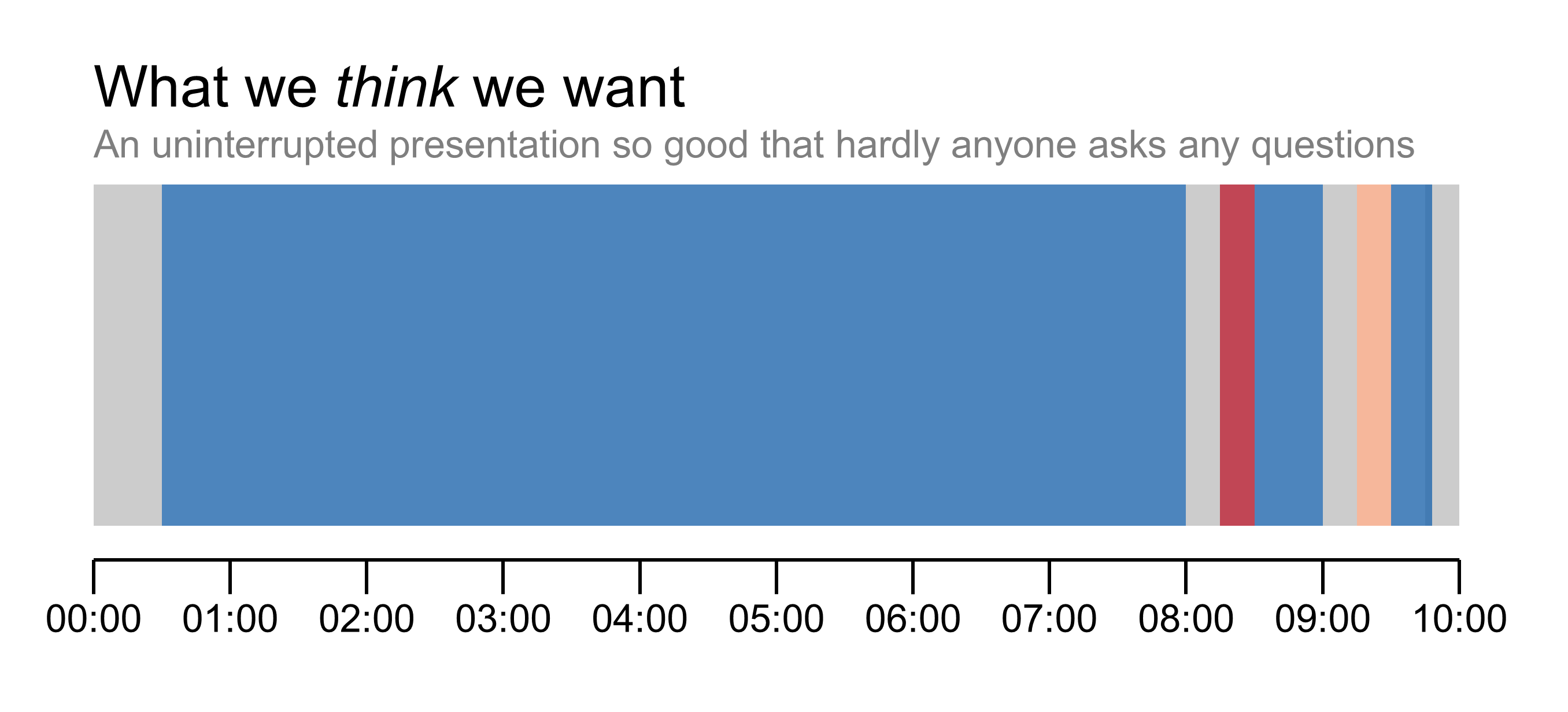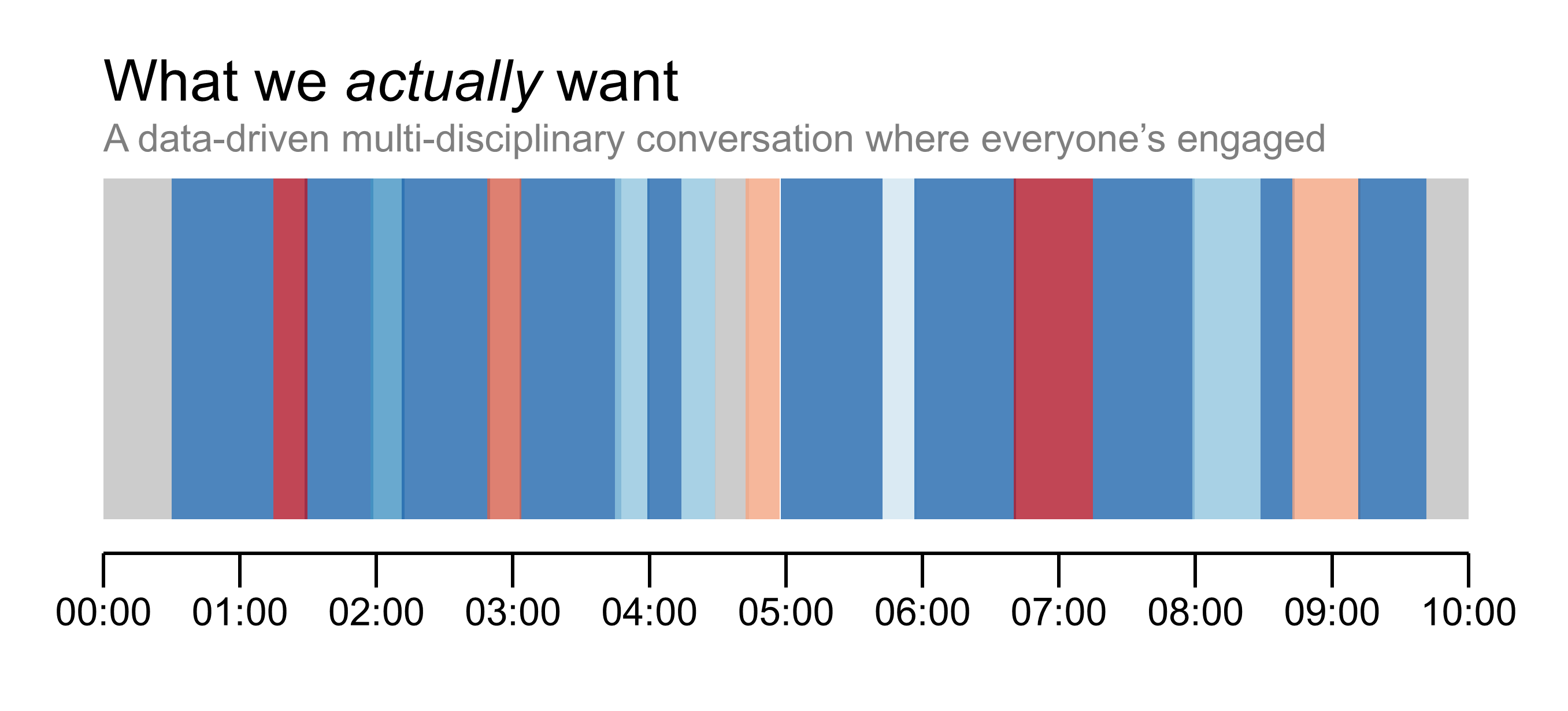
Most of us data analysts tend to see data presentations as a necessary evil. We'd avoid them completely if at all possible. But if avoidance isn't an option, then we think of them as things that need to be 'got through'. And we hope—we really hope—that nobody asks any questions at the end. We dread the questions even more than we dread the presentation itself.

This is a one-way model of communication. And I think this is the wrong model for thinking about data presentations. We should instead be aiming for dialogue, and we want that dialogue to involve as many people in the meeting as possible. We should think of meetings as opportunities for people to criticize our data, our methods and our findings. I don't mean by this that we should deliberately present ill-thought-out meanderings and hope to get away with it. No. We shouldn't compromise our professionalism or our ethics. We are going to present information that has been done properly. But what we should do is expect and invite criticism and counter-argument.

So this is a change of mindset. We're not going for a Ta-dah! moment prompted entirely by our solo heroic efforts. Instead, we're trying to involve the people in the meeting in a multi-sided conversation. Yes, there will be disagreements, but they will be civil and respectful disagreements, out of which will emerge deeper, more meaningful insights than could have occurred from merely a solo performance.
Data in the Line of Fire can be booked as an on-site face-to-face course for £1,250+VAT, and up to eight participants can be accommodated in each workshop session. Email info@kurtosis.co.uk to start making arrangements. Open course places cost £350+VAT.